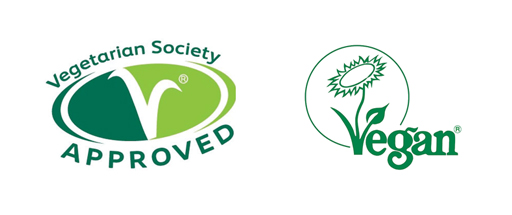3 Vegetarian and vegan diets
Does the Eatwell Guide help people who follow a vegetarian or vegan approach (Figure 13)? The protein section does include suitable options and, therefore, is very relevant.

The Vegetarian Society defines a vegetarian as follows.
A vegetarian is someone who lives on a diet of grains, pulses, legumes, nuts, seeds, vegetables, fruits, fungi, algae, yeast and/or some other non-animal-based foods (e.g. salt) with, or without, dairy products, honey and/or eggs. A vegetarian does not eat foods that consist of, or have been produced with the aid of products consisting of or created from, any part of the body of a living or dead animal. This includes meat, poultry, fish, shellfish, insects, by-products of slaughter or any food made with processing aids created from these.
There are four main different types of vegetarianism as you will see in the next activity.
Activity 5 Types of vegetarianism
Match the relevant type of vegetarianism with the types of food eaten.
Two lists follow, match one item from the first with one item from the second. Each item can only be matched once. There are 4 items in each list.
-
Lacto-ovo-vegetarians
-
Lacto-vegetarians
-
Ovo-vegetarians
-
Vegans
Match each of the previous list items with an item from the following list:
a.eat eggs but not dairy products
b.do not eat dairy products, eggs, or any other products which are derived from animals
c.eat dairy products but avoid eggs
d.eat both dairy products and eggs
- 1 = d,
- 2 = c,
- 3 = a,
- 4 = b
Answer
- Lacto-ovo-vegetarians eat both dairy products and eggs; this is the most common type of vegetarian diet.
- Lacto-vegetarians eat dairy products but avoid eggs.
- Ovo-vegetarians eat eggs but not dairy products.
- Vegans do not eat dairy products, eggs, or any other products which are derived from animals.
There is another category called pescetarianism or pesco-vegetarianism. Most vegetarians maintain a lacto-ovo vegetarian diet with the addition of fish and shellfish.
The choice of following certain dietary approaches can result from ethical or religious reasons. Either way, the principles of healthy eating and balancing the different food groups are still relevant.
Certain dietary restriction means there is a possibility of nutritional deficiencies. If you are vegetarian, it is important to have sources of iron, vitamin B12 and calcium and omega fats. The NHS Choices website [Tip: hold Ctrl and click a link to open it in a new tab. (Hide tip)] has information about vegetarian and vegan dietary approaches.
The most restrictive type of diet is veganism but, if followed correctly, it can offer a varied, balanced way of eating.
